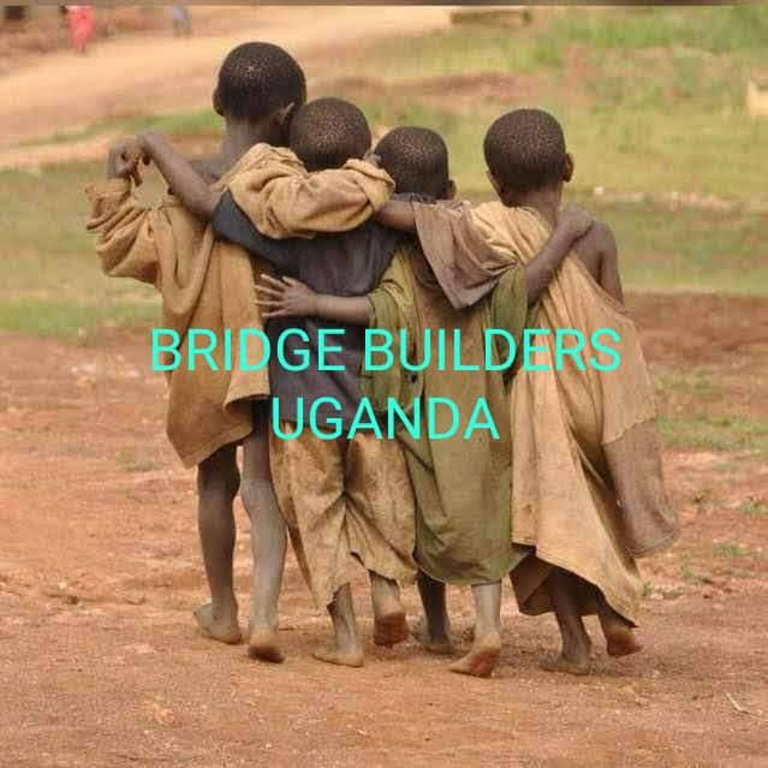BRIDGE BUILDERS OUTREACH REPORT 2025
BRIDGE BUILDERS UGANDA BUILDERS OUTREACH AT
AGAPE MINISTRIES REHABILITATION HOME, NYANAMA
Introduction.
Bridge Builders Uganda carried out an outreach activity at a rehabilitation home as part of its ongoing efforts to support vulnerable street-connected children in Uganda, particularly within Kampala District. This was a nonprofit initiative aimed at providing both emotional and material support to children undergoing rehabilitation. The team donated essential items such as pens, notebooks, playing cards, and snacks, including biscuits and sodas.
Objective:
To show solidarity and encouragement to formerly street-connected children currently undergoing rehabilitation, a process that prepares them for family reunification within six months.
Activity Description:
The visit involved an engaging and interactive session with the children, nine young boys currently residing at the rehabilitation home. They are supported by five caregivers who live with them and provide day-to-day care and guidance. Upon arrival, the team was warmly welcomed by:
1. Mr. Eric – Interim Class Coordinator
2. Mr. Robert – Home Administrator
3. Mr. Brian – Skilling Facilitator
The home environment was serene, exceptionally clean, and well-organized. The children follow a structured daily routine that fosters discipline, responsibility, and growth.
We were deeply inspired by the boys' commitment to their rehabilitation journey. They actively participate in daily routines such as waking up early, playing organized games, and taking on responsibilities within the home. These positive habits are crucial for their successful reintegration into both their families and communities
Highlights of the Outreach Session:
v A warm welcome and introduction of Bridge Builders Uganda to the children and staff of the home.
v An enriching learning and sharing session led by Ms. Arinda Ritah, an administrative volunteer, which sparked open conversation and reflection.
v Children introduced themselves in an organized and confident manner, showcasing the progress they’ve made in social and communication skills.
v A lively question-and-answer session where the children reflected on their past experiences and compared life before and after coming to the home.
v Emotional and uplifting success stories were shared by the boys, highlighting their personal growth since joining the rehabilitation program.
v A fun and collaborative card game session promoted teamwork, cooperation, and social bonding.
v The group learned a new school rhyme, which was a fresh and exciting experience for many of the children.
v We introduced a new appreciation method—sending flowers instead of clapping—as a creative way to express gratitude and encouragement.
v We also took a guided tour of the residential area, and it was encouraging to witness the commendable work being done to provide a stable, nurturing environment.
Challenges Noted:
The short rehabilitation period limits how much the children can learn.
There is a lack of basic needs such as clothing and shoes.
Some children exhibited low confidence in formal educational skills, such as writing their name and reading.
Limited follow-up after reintegration/home tracing.
There is a great need to support children with basic education.
Regular visits and consistent follow-up are essential for continued support.
Clothing and shoes are immediate needs and should be prioritized.
Establishing strong partnership with the home will strengthen impact.
More engagement activities should be designed to build their confidence and social skills.
Way Forward:
Following the success of this outreach, Bridge Builders Uganda plans to deepen its engagement with the rehabilitation home through consistent, structured interactions. One key initiative to be introduced in future sessions is the “Rhyme Project”—a creative learning activity designed to build confidence, enhance memory, and foster expression among the children through fun, educational rhymes.
The team also aims to:
ü Conduct follow-up visits to monitor the children’s progress.
ü Introduce more skill-based interactive sessions (e.g., storytelling, drawing, and team-building games).
ü Continue providing essential supplies and psychosocial support.
ü Collaborate more closely with caregivers to identify specific areas where the children need support—both emotionally and academically.
ü This continued support will ensure that the children remain motivated, engaged, and well-prepared for their journey toward family reintegration.
Conclusion:
The outreach activity was a heartwarming and impactful experience for both the children and the visiting team. Bridge Builders Uganda remains committed to supporting such initiatives that aim to restore hope, dignity, and opportunity for formerly street-connected children in Uganda. The progress seen at the rehabilitation home is a strong testament to the power of structured care, love, and community support in transforming lives.
Compiled by BBU
Team Lead
Support
Empowering vulnerable communities through education and health.
Connect
info@bridgebuildersuganda.com
00256-7887-25954
© 2024. All rights reserved.
